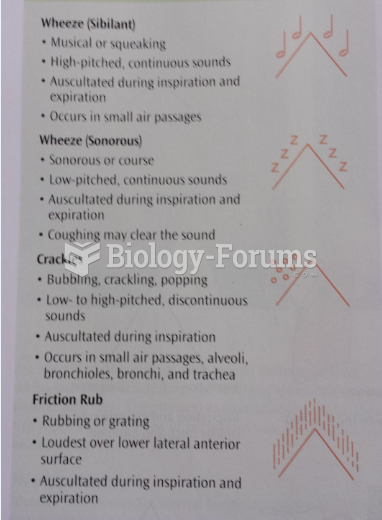|
|
|
In inpatient settings, adverse drug events account for an estimated one in three of all hospital adverse events. They affect approximately 2 million hospital stays every year, and prolong hospital stays by between one and five days.
The heart is located in the center of the chest, with part of it tipped slightly so that it taps against the left side of the chest.
In 1864, the first barbiturate (barbituric acid) was synthesized.
If you use artificial sweeteners, such as cyclamates, your eyes may be more sensitive to light. Other factors that will make your eyes more sensitive to light include use of antibiotics, oral contraceptives, hypertension medications, diuretics, and antidiabetic medications.
The familiar sounds of your heart are made by the heart's valves as they open and close.







